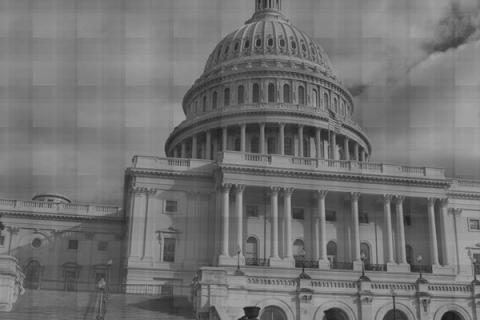Election year politics and a lame-duck governor could be sending California into a lengthy budget standoff as the Legislature has already missed the often-missed June 15 constitutional deadline to send a budget to the governor.
Decisions needed to close a $17.9 billion gap between revenues and spending commitments require either deep cuts or steep revenue increases or a combination of both.
Half of the 40-member state Senate and all 80 seats in the Assembly are up for election – to say nothing of a hard fought gubernatorial race between GOP candidate Meg Whitman and Attorney general Jerry Brown. Despite having only 30 weeks left as governor, Arnold Schwarzenegger has insisted he will sign no budget that doesn’t include steps to reduce the state’s future public pension obligations, something Democrats have so far refused to do. Democrats have also balked at closing the budget hole largely through cuts as the GOP governor proposes among them eliminating the state’s welfare program, which would trigger a loss in $4 billion in federal matching funds.
A special two-house conference committee charged with reconciling differences between the budget plans created by the Senate and Assembly is at loggerheads. Also aiding in extending budget resolution is legislation passed earlier this year giving greater power to the state treasurer and state controller over regulating the state’s cash flow to avoid having to issue IOUs as the state did last July.
Under the legislation, the controller says he can make $20 billion in payments to public schools and higher education but not $1.2 billion to others including vendors who provide services to the state after July 1. State elected officials and their staffs also will go without pay. Despite the nearly 20 to 1, pay, not pay ratio, Controller John Chiang warned lawmakers and the governor to reach a speedy budget solution. “At a time when the economy is showing signs of recovery, we can ill-afford the ‘business-as-usual’ approach of requiring the state to be driven to the brink of fiscal meltdown before compromise is achieved,” Chiang wrote in a June 15 letter to Schwarzenegger and legislative leaders. “Already-struggling Californians will pay the price.”
Further contributing to drawing out budget negotiations, on June 17, Attorney General Brown said the Assembly Democrats’ budget proposal was likely illegal – an opinion Schwarzenegger quickly forwarded to the media. "We conclude that a court could reasonably determine that the proposed transaction violates Proposition 58," Brown's wrote in a letter to Andrea Hoch, Schwarzenegger's legal affairs secretary.
The centerpiece of the Assembly Democrats’ proposal is to borrow up to $9 billion from the fund containing the fees Californians pay to recycle bottles and cans. The loan would be repaid with an as yet enacted tax on oil companies. Proposition 58, approved by voters in March 2004, generally prohibits the state from using deficit financing to escape a budget shortfall.
Brown’s opinion said that even though the Assembly Democrats identify a revenue stream to pay back the loan, it still would be “suspect” under the initiative, which was backed by the GOP governor as a way to “tear up the state’s credit card.” The legal opinion stalls budget negotiations because Assembly Democrats have no apparent fallback even though Assemblyman Bob Blumenfield, a Van Nuys Democrat and chair to the lower house’s budget committee, acknowledged “the Attorney general’s comments will be helpful to us in crafting something that works.”
For their part, Republicans on the conference committee consider further discussion of the Assembly plan to be a waste of time since the proposal by the lower house’s majority refuses to admit that cuts will be necessary to close the budget gap.
Senate Democrats propose closing more than one-third of the budget gap by postponing the effective date of several tax breaks enacted in the 2009 budget and continuing several tax increases from the same budget for two years to reduce the state’s shortfall by $4.9 billion. Republican lawmakers – and Schwarzenegger – refuse to back any budget that contains tax increases, which is how they define the postponement of the tax breaks of the 2009 budget. Those reductions were included to win enough GOP votes to reach California’s two-thirds vote threshold for approval of budgets.
Senate Democrats let the temporary 1-cent increase in the sales tax enacted in the same budget expire at the end of the next fiscal year because it’s “regressive” – a family of four earning $40,000 annually pays the same rate as a billionaire. In contrast, the income tax is progressive – liability increases along with the amount of taxable income – so Senate Democrats maintain a .25 percent surcharge on state income taxes for two years and maintain the dependent tax credit at $102 – down from $319 for two years. Both were parts of the 2009 budget.
The largest chunk of the revenue increases offered by Senate Democrats is to postpone the effective date of two tax changes benefiting larger corporations for two years and continue for another two years the ban on businesses writing off prior year losses against tax year profits. Doing so saves the state $2 billion in the fiscal year beginning July 1 and an additional $1.5 billion the following year.
In his January budget, Schwarzenegger proposed doing the same thing for one year if federal funds he sought didn’t materialize. Although those funds did not come in at the level the GOP governor wanted, he abandoned the idea in his revised budget in May.
“After the largest tax increase in our state’s history we cannot ask California taxpayers to continue to pay for Sacramento’s mistakes,” said Aaron McLear, Schwarzenegger’s press secretary, at the time.

